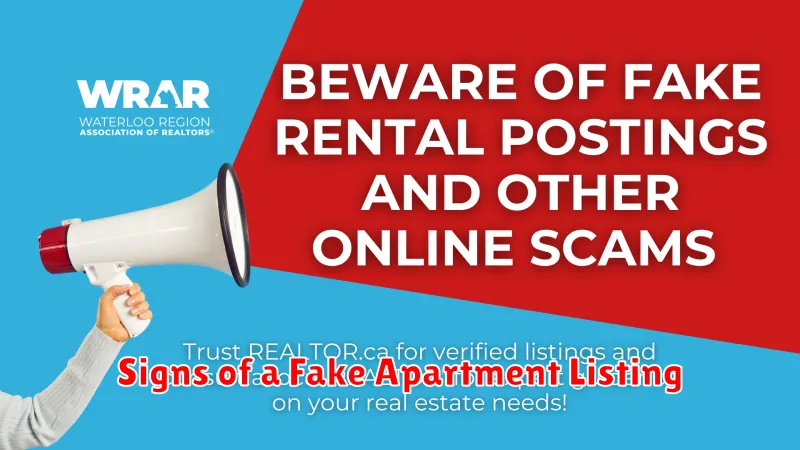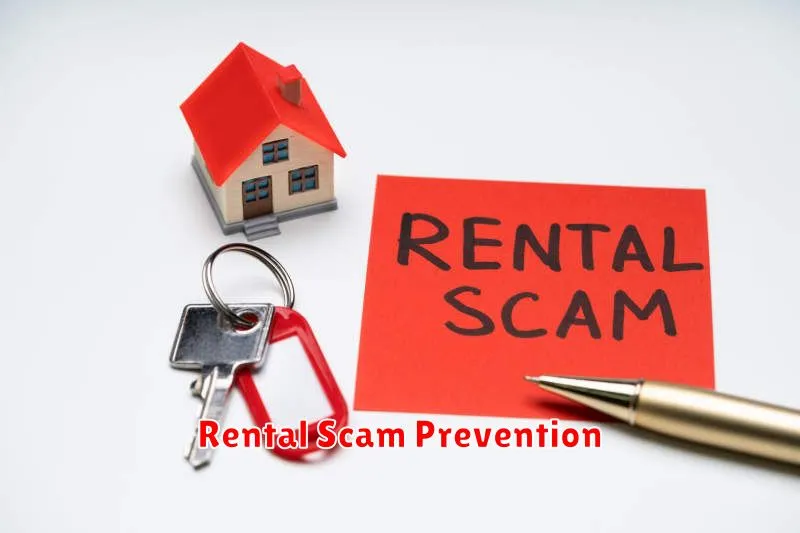Are you searching for apartment rentals but worried about falling victim to a rental scam? You’re not alone! Finding the perfect place to live shouldn’t involve financial risk. This guide will help you navigate the tricky world of apartment hunting and avoid common rental scams, ensuring a smooth and safe transition into your new home. Learn how to spot red flags, protect your personal information, and secure your dream apartment without losing your hard-earned money. Let’s get started on your journey to finding the perfect apartment rental scam-free!
Introduction: The Rise of Rental Scams
The rental market, especially in popular urban areas, is a hotbed for scams. With high demand and limited supply, opportunistic individuals prey on vulnerable renters looking for a place to call home. These scams are becoming increasingly sophisticated, making them harder to detect for the average person.
Online platforms have made it easier to connect with potential landlords, but also created a fertile ground for fraudulent listings. Scammers often utilize fake profiles, stolen photos, and convincing narratives to lure unsuspecting victims into parting with their money. This results in significant financial loss and emotional distress for renters.
The consequences of falling victim to a rental scam can be devastating. Victims can lose thousands of dollars in upfront fees, security deposits, and even monthly rent payments. Beyond the financial hardship, the emotional toll of being displaced and facing the difficulty of finding alternative housing can be substantial. Understanding these risks is the first step in protecting yourself.
Signs of a Fake Apartment Listing

Finding the perfect apartment can be exciting, but it’s crucial to be vigilant against scams. Fake listings often share common characteristics that, if recognized, can save you from frustration and financial loss.
One major red flag is a price that’s too good to be true. If the rent is significantly lower than comparable apartments in the area, be wary. Similarly, be cautious of listings with vague or missing details. Lack of photos, unclear addresses, or descriptions that are too generic are all warning signs.
Suspicious communication is another critical indicator. If the landlord only communicates through email or text and avoids phone calls, or if they pressure you to send a deposit before viewing the property, proceed with extreme caution. Requests for wire transfers or prepaid debit cards for deposits or payments are almost always a scam.
Finally, always verify the listing independently. Search the address on Google Maps or a similar service. Try to find the property listed on other reputable rental sites. If you can’t find the apartment listed anywhere else or the address leads to a different location, it’s almost certainly a fake.
By being aware of these signs and taking the necessary precautions, you can significantly reduce your risk of falling victim to a rental scam.
How to Verify Landlord Credentials
Before handing over any money or signing a lease, it’s crucial to verify your potential landlord’s credentials. Don’t rely solely on online listings; take proactive steps to ensure you’re dealing with a legitimate property owner or management company.
Check for a valid real estate license: Many states require landlords to have a real estate license, particularly if they manage multiple properties. You can usually verify this through your state’s real estate licensing board’s website. Look up the landlord’s name and company (if applicable) to confirm their licensing status and ensure it’s current.
Verify property ownership: Use your county’s assessor’s office website (or a similar resource) to confirm the landlord actually owns the property. This will show the legal owner of the property and will help you avoid dealing with fraudulent individuals. Compare the name listed on the ownership records with the name of the person or company you are dealing with.
Conduct online research: Search online for reviews and complaints related to the landlord or property management company. Websites like Yelp or Google Reviews can provide valuable insights into their reputation. Be aware that not all reviews are accurate, but a pattern of negative reviews should raise a red flag.
Request and verify identification: Don’t hesitate to ask the landlord for identification. They should be willing to provide it. Compare the name and information on their ID to the information you’ve gathered through other verification methods. This helps prevent scams and ensures you are dealing with the right individual.
Don’t be afraid to walk away: If you encounter any inconsistencies or feel uneasy during the verification process, it’s best to walk away. Finding a safe and secure rental is worth the extra effort. There are plenty of other properties available, so don’t settle for something that feels suspicious.
The Importance of Visiting Apartments in Person
Before signing any lease, visiting the apartment in person is crucial. Online photos and descriptions can be deceiving, and scammers often use them to lure unsuspecting victims.
An in-person visit allows you to verify the apartment’s actual condition. Check for signs of damage, assess the cleanliness, and ensure the amenities advertised are actually present and functional. This firsthand inspection helps you avoid unpleasant surprises after moving in.
Furthermore, a visit lets you get a feel for the neighborhood. Observe the surrounding area, check for noise levels, and assess the safety of the location. This is invaluable information that cannot be gleaned from online listings.
Meeting the landlord or property manager in person is also beneficial. This allows you to ask questions, verify their identity, and assess their professionalism. This interaction can help you identify potential red flags and avoid dealing with dishonest individuals.
In short, while online apartment hunting is convenient, a personal visit is a critical step in protecting yourself from rental scams and ensuring you find a suitable and safe place to live.
Tips for Safe Online Apartment Hunting
Finding your dream apartment online can be exciting, but it’s crucial to stay vigilant against scams. Verify the listing’s legitimacy before engaging further. Check the listing on multiple sites to confirm its authenticity and look for red flags like unusually low prices or pressure to pay quickly.
Never wire money or use prepaid debit cards. Legitimate landlords typically use secure online payment platforms or accept checks. Beware of requests for payments outside established systems, as this is a major scam indicator.
Communicate directly with the landlord or property manager. Avoid third-party intermediaries, especially those who request fees upfront. Use official contact information listed on the property’s website or through a verified platform. Don’t trust information solely from email or text messages.
Conduct thorough research. Before making any commitments, perform a background check on the landlord or property management company. Look for reviews and testimonials online. If possible, try to visit the property in person before signing any agreements.
Read the lease agreement carefully. Don’t rush into signing anything. Make sure you understand all terms and conditions before committing to a rental agreement. Consider having a legal professional review the lease if needed. Trust your instincts; if something seems too good to be true, it probably is.
By following these tips, you can significantly reduce your risk of becoming a victim of an online rental scam and find a safe and secure apartment.
Common Scams to Watch Out for in Apartment Rentals
Finding the perfect apartment can be exciting, but it’s crucial to be aware of common rental scams to avoid becoming a victim. Fake listings are prevalent online, often featuring stunning photos of apartments that don’t exist. These scammers typically ask for deposits or application fees upfront before showing you the property, which is a major red flag.
Another common scam involves imposter landlords. These individuals fraudulently claim ownership of a property and collect rent and security deposits from unsuspecting tenants. They may use convincing fake IDs and documentation to appear legitimate. Always independently verify the landlord’s identity and ownership through official channels.
Advance-fee scams are also widespread. Scammers might request payment for application fees, security deposits, or other charges before you’ve even signed a lease or seen the property. Legitimate landlords will not ask for significant upfront payments without a formal lease agreement in place.
Beware of too-good-to-be-true deals. If an apartment’s rent is significantly lower than comparable units in the area, it’s likely a scam. Similarly, be cautious of landlords who are overly eager to rent to you without a proper application or background check process.
Finally, be wary of any communication that feels rushed or pressured. Legitimate landlords are usually professional and provide ample time to review documents and ask questions. If you feel pressured to make a quick decision, it could be a sign of a scam.
Protecting yourself involves thorough research, verifying information through multiple sources, and never paying significant sums of money without seeing the property and signing a lease agreement. Trust your instincts – if something feels off, it probably is.
Steps to Take if You Encounter a Scam

If you suspect you’ve encountered a rental scam, act quickly. The first step is to stop all communication with the suspected scammer immediately. Do not respond to any further emails, texts, or calls.
Next, gather all evidence. This includes screenshots of any communication, copies of emails, and any financial transactions you may have made. Note down the scammer’s contact information, including phone numbers, email addresses, and any online usernames.
Report the scam to the appropriate authorities. This includes reporting it to your local police department and the Federal Trade Commission (FTC). If you provided any banking information, contact your bank immediately to report potential fraud.
If you paid money to the scammer via a wire transfer or prepaid debit card, chances of recovery are slim. However, reporting the incident increases the likelihood that the scammer will be caught and held accountable. Consider contacting your credit card company if you paid with a credit card, as they may be able to offer some recourse.
Finally, learn from the experience. Review the warning signs of rental scams and take extra precautions in the future. Research the property and landlord thoroughly before engaging further. Remember, if something feels too good to be true, it probably is.
The Role of Rental Agencies in Preventing Scams
Rental agencies can play a significant role in preventing rental scams. Their established presence and adherence to regulations offer several layers of protection for renters.
Firstly, reputable agencies typically conduct thorough background checks on landlords and property owners, verifying their legitimacy and ownership rights. This mitigates the risk of dealing with fraudulent individuals posing as landlords.
Secondly, agencies often have secure payment systems in place, ensuring that rental payments are processed through safe and transparent channels. This reduces the chance of renters falling victim to wire transfer scams or other fraudulent payment methods.
Thirdly, agencies provide legally binding lease agreements, protecting both renters and landlords. These contracts clearly outline the terms of the tenancy, minimizing potential disputes and safeguarding renters’ rights.
Finally, the involvement of a reputable agency increases accountability. If a scam occurs despite their efforts, renters have a point of contact to escalate the issue and seek redress.
While no system is foolproof, utilizing a licensed and reputable rental agency significantly lowers the risk of encountering rental scams and provides renters with much-needed peace of mind.
Conclusion: Staying Safe While Searching for Apartments
Finding your perfect apartment shouldn’t come at the cost of your safety and security. Remember, due diligence is key. By carefully verifying listings, communicating only through official channels, and never sending money before seeing the property in person, you can significantly reduce your risk of becoming a victim of rental fraud.
Trust your instincts. If something feels off – whether it’s an unusually low price, pressure to pay quickly, or a landlord who avoids meeting in person – walk away. There are plenty of legitimate rental options available. Prioritizing your safety and using common sense will help you find a safe and suitable apartment without falling prey to scams.
Ultimately, a little extra caution and careful research can save you significant stress, time, and money. Stay vigilant, stay informed, and happy apartment hunting!

